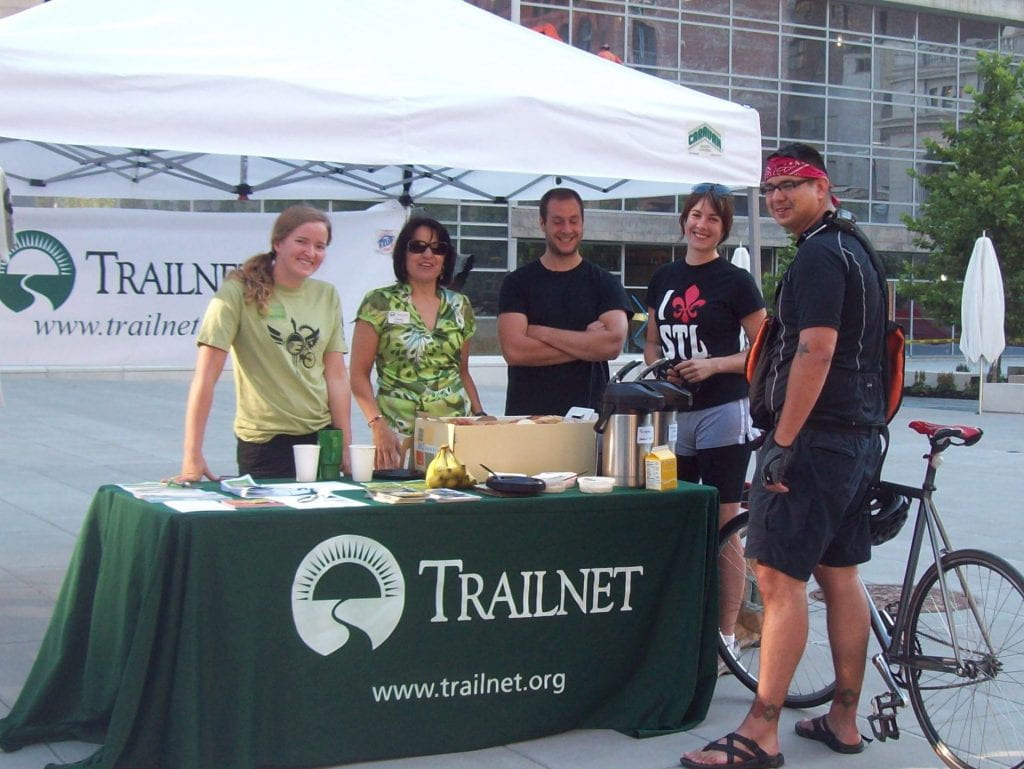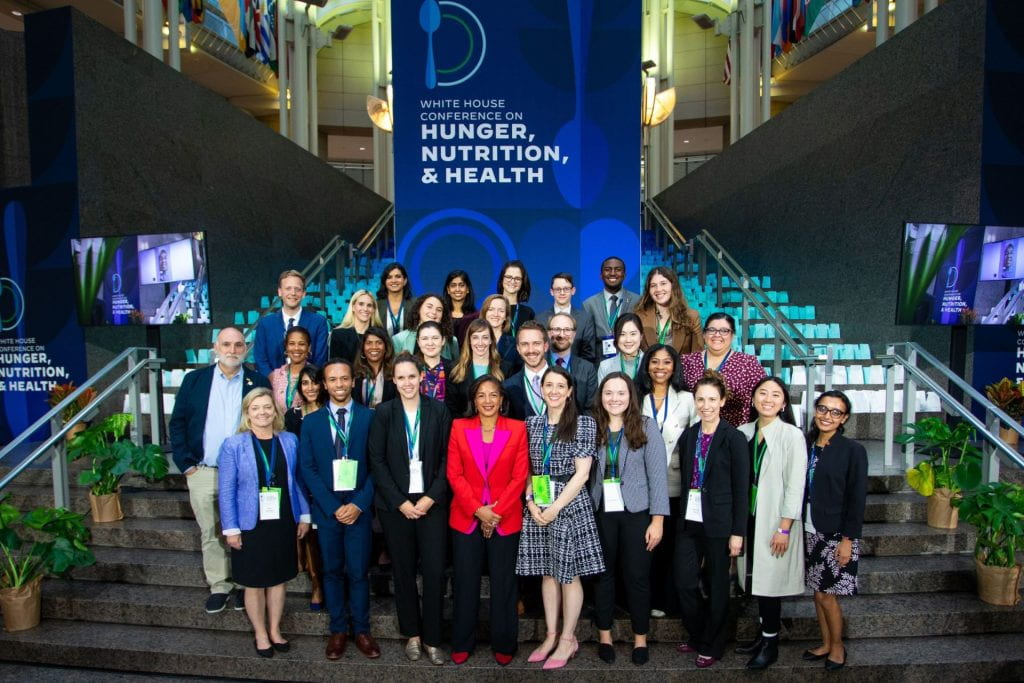
From her undergraduate origins at WashU to her role with the White House Office of Science and Technology Policy team in San Francisco, Karin Underwood’s civic journey is a powerful example of a life dedicated to civic engagement. Each experience has served as an impactful cornerstone that paved her way to the White House and vision of building a more equitable future.
As a Goldman Fellow in the Gephardt Institute’s St. Louis Fellowship Program, Underwood interned with Trailnet, a prominent organization for bike advocacy in St. Louis. This experience was formative in exposing her to civic leaders’ collaborative efforts to coordinate initiatives that build a stronger community and infrastructure. It also offered her a firsthand understanding of the City of St. Louis.
“I worked in downtown St. Louis, which allowed me…to know a different St. Louis than I was exposed to at WashU,” she said.
She witnessed how a small group of dedicated individuals could influence an entire region. “That lesson was reinforced when I worked with some of the continuum of care organizations in St. Louis when I founded the Campus Kitchen Project.”

Underwoods’ journey as the founder of Campus Kitchen at WashU is a testament to her commitment to effecting change in communities. During her time as a student, she became aware of the need for better food distribution in the city through interactions with individuals struggling with food insecurity in downtown St. Louis. Underwood and a group of student leaders embarked on a mission to mobilize fellow students and utilize donated food from WashU to establish a distribution program for homeless shelters. They secured an operational location, built partnerships with shelters, obtained certification as a kitchen, and initiated cooking sessions. This experience set the foundation for her later work with nonprofits and social enterprises.
After graduating from WashU, Underwood embarked on a diverse professional journey, working with health tech startups, social enterprises in Kenya and Myanmar, and attending business school at Stanford. She founded her own social enterprise, CoachMe Health, before eventually merging it with a larger nonprofit organization. It was during this time that she was offered a role as a Presidential Innovation Fellow with the White House—an opportunity she recognized as a once-in-a-lifetime chance to serve the administration and make an impact through public service.
Her work at the White House Office of Science and Technology Policy focuses on building better data systems to inform equity across these domains, ensuring that the voices of those impacted are heard and considered in decision-making processes. She also applied her passion for tackling food and hunger issues by organizing the White House Conference on Hunger, Nutrition, and Health. Through collaborative efforts, including securing a remarkable $8 billion in commitments from the private and public sectors, Karin and her team strive to achieve President Biden’s national strategy of ending hunger and reducing diet-related diseases by 2030.
“As I make decisions and bring federal agencies together to shape federal policy…I know I wouldn’t have the same empathy and grounding without my community service experience at WashU,” said Underwood. “Specifically, I think about my advisor at WashU, Kate Durso, who helped me think through how to build community partnerships when doing partner engagement.”
Underwood advises students to use their time in college to engage in service that aligns with their interests. She encourages them to explore various areas, such as food scarcity, childhood education, or environmental advocacy, to leverage the supportive environment of WashU and units like the Gephardt Institute. She believes that starting small and seeking opportunities for engagement within their communities can have a profound impact.